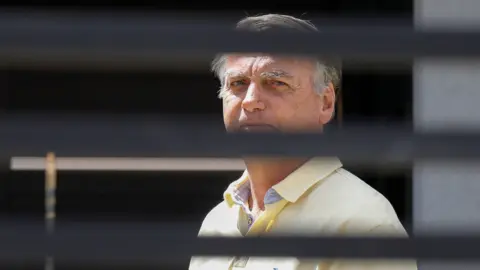From political outsider to a president like no other: Bolsonaro's rise and fall
 Getty Images
Getty ImagesIn September 2018, Jair Bolsonaro was stabbed while campaigning, a shocking event that paradoxically bolstered his political persona, leading to his election as president weeks later. Fast forward seven years, and Bolsonaro has been convicted of plotting a coup, sentenced to over 27 years in prison, though many believe his influence persists in Brazilian politics.
Bolsonaro's ascent from a controversial congressman to president marked a significant shift in Brazilian politics, fueled by a coalition of disgruntled voters, military advocates, and right-wing supporters. However, his presidency faced immense challenges, including pandemic management and increasing environmental concerns, leading to significant backlash both domestically and internationally.
Following his electoral defeat in 2022 to Lula, Bolsonaro’s supporters engaged in violent protests, and he fled to the United States, refusing to acknowledge his loss. His eventual return heralded further controversies, including allegations of coup plotting and attempts to negotiate political amnesty.
The complexities of Bolsonaro's legacy continue to unfold, highlighting the deep divisions within Brazilian society and raising questions about the future of governance in Brazil.


















